By Ananth Krishna Subhalakshmy
The decision of the BJP Government in Karnataka to remove the special ‘2b’ reservation for Muslims in OBCs has led to much indignation. A variety of arguments have cropped up on why the action was anti-OBC and communal. The NewsMinute (TNM) too published a piece by activist and freelance journalist Shivsundara.
His piece argues that the removal of reservation is deceptive and divisive, and also argues that the statements made by the Karnataka Chief Minister and Union Home Minister regarding the unconstitutionality of reservations on the basis of religion is a “manipulative interpretation” of judgments.
The arguments in the article, however conceal more than they reveal about reservations and the criteria relevant to reservation.
The arguments in the TNM piece can be summed up as follows:
● The BJP is misinterpreting the decision of the Andhra High Court in T Muralidhar Rao v. State of Andhra Pradesh; and
● The BJP is deceiving the Scheduled Caste communities by recommending reclassification of the SCs to the Union Government.
The author however fails to make his case in both issues, as I will explain below. For context, it must be understood that reservation in educational admissions and in public service are meant to provide advancement of these classes.
As stated in Article 15(4) of the Constitution, the Government “can make any special provision for the advancement of socially and educationally backward classes..” (emphasis supplied), and in Article 16(4), the Government is empowered to make provisions for “reservation of appointments or posts for any backward class of citizens which, in the opinion of the State, is not adequately represented in the services under the State.” (emphasis supplied).
These provisions are the basis on which we have reservations in educational admissions and in public service. As can be noticed, the reservation can be for any class of citizen and not necessarily tied to caste. It has been held by countless judgment that caste cannot be the basis for reservation. It can be the tool for the identification of classes of citizens that are socially & educationally backward. The existence of a group cannot be the basis for membership, especially when the identified group cannot be identified as a singular class.
Now, coming to the assertions made by the journalist. Firstly, the question of the Andhra Pradesh High Court Judgment. The author chooses to highlight a singular reference to “conversion” encouraged by the reservation in the Judgement and chooses to dismiss the more than hundred other paragraphs of the judgment. The concluding statement of the majority judgment details how the classification of Muslims as a backward group has been made without applying uniform criteria and that the AP Backward Classes Commission was “unable to evolve relevant criteria to identify the social and educational backwardness or social backwardness and inadequate representation in public employment, among classes of persons belonging to the Muslim Community”.
The judgment in Muralidhar Rao is thus not hollow as the author of the TNM piece suggests. In fact it is quite a well reasoned judgment that proves fatal to the viewpoint and is conveniently dismissed. Reservation is not to be doled out for groups but for classes of persons who through some certain identifier are socially and educationally backward. The class so identified must suffer from some common disadvantage and backwardness based on their occupation, means of living, social status and so on. Reservation under these Articles cannot be provided to the whole of a group based on their existence. The backwardness common to the group should be identifiable and furthermore the group identity should be identifiable on the basis of that identity.
It is important to note that the Muslim community in Karnataka is not a monolithic group that equally suffers from backwardness. It is undoubted that there are groups within the Muslim community that have different levels of backwardness; can the relatively prosperous Beary community be equated to the relatively backward Siddi Muslims in the state? The common identifier of “Muslim” as provided in the 1994 Original Government order doubtlessly fails the criterion of the very judgment’s directions (directions issued under Indra Sawhney) it supposedly implements. It fails those within the Kannadiga Muslim community by treating them as a monolithic group and evolving an unscientific, biased basis for reservation.
That religion cannot be the sole basis of reservation was held by the Supreme Court way back in 1967 in Trilok Nath Tiku v. State of Jammu & Kashmir. Even today however, reservation is provided for minority groups on the sole basis of membership of religions. In Karnataka itself, the Muslim community had earlier called for an increase in its sub quota reservation.
States such as Kerala and Tamil Nadu too provide reservation for the entire Muslim community in the state. The creation of such monolithic reservation benefits subverts the intention of reservation and defeats intra-group and inter-group equality. Reservation is meant to ensure that classes who are backward are benefitted and not entire groups when there are identifiable classes within them who are more deserving of reservation.
The second argument by the author is even more specious. The Karnataka Government has clarified that it has recommended reclassification of Scheduled Castes. The author deems this “deceptive” that the Union Government has not introduced a legislative solution to the issue of reclassification of Scheduled Castes. As the author himself notes, the Supreme Court had held in E.V. Chinniah v. State of Kerala (2004) that internal classification of SCs is constitutionally impermissible; though the Supreme Court had in State of Punjab v. Davinder Singh (2020) had decided to relook into the issue.
The bench in the issue has not been constituted as of yet if the Modi Government moved forward with an amendment at that stage, members of the commentariat including the author would call it “undermining” the judicial process.
To call the actions of the Bommai Government as “unconstitutional” and “deceptive” betrays the ignorance of the author, whose purpose is political. In the final paragraph the author calls the move “part of the BJP’s relentless agenda towards the reestablishment of the Brahmanical order by systematically destroying social justice measures”. In fact, it is continued religion-based reservation that destroys social justice and perpetuates the intra-group inequality.
About the author
The author is a lawyer and commentator and can be reached on Twitter @Ananth_Krishna_

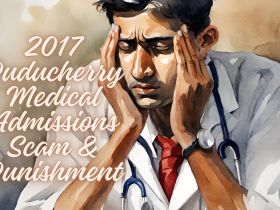

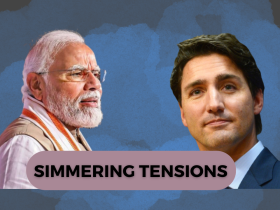
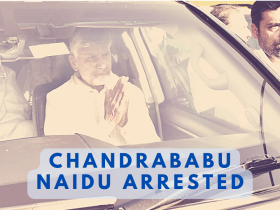
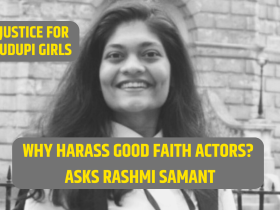
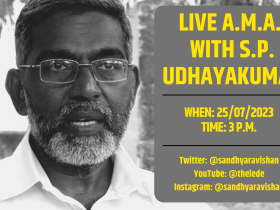



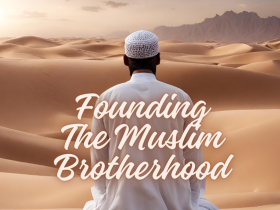

Leave a Reply